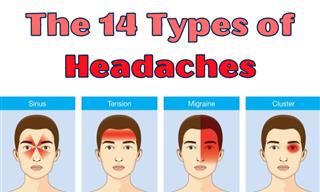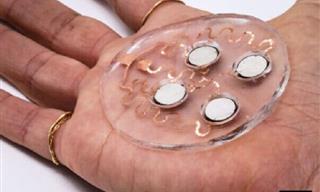
Myth 1: White bread is fattening and doesn’t help the body - False
Many claim that consuming white bread can cause bloating, allergies, and obesity. However, all standard white bread sold in stores contains vitamins and minerals that the body needs and a review by the British Nutrition Fund in 2012 found that there is no scientific evidence that white bread causes bloating and digestive problems. A slice of white bread provides about 7% of the recommended daily intake of protein and sodium, about 6% of the recommended daily intake of selenium and manganese, and about 5% of the recommended daily intake of calcium and iron. While this vitamin and mineral content is lower than in other types of bread, this shows that white bread isn’t just an "empty carbohydrate" as many think. However, it should be noted that white bread is bound by research to other health problems, and therefore it is recommended not to consume it in high amounts regardless of its effect on your weight in relation to other types of bread.
Myth 2: Diet sauces are much healthier than regular sauces - False
When it comes to dairy or meat products, you can say that the less fat they contain, the healthier they are, but that's not the case with sauces. If you’re trying to lose weight, changing your favorite sauce to a diet or fat-free sauce will save you about 100 calories (per 2 tablespoons), but recent research shows that without the fat content in your salad dressing and without certain fatty acids it contains, It would be difficult to absorb all the nutrients in food. In this case, the dosage is what’s important; 2 tablespoons of sauce for each serving of salad will provide you with that wonderful taste and will enrich your body with the vitamins and minerals it needs.

Myth 3: Potatoes cause obesity and are bad for diets - False
Contrary to what many think, eating potatoes doesn’t directly contribute to obesity as long as you don’t eat them deep-fried, with butter, sour cream or cheese. Furthermore, nutritionally, boiled potatoes are great diet food because they contain a great deal of fiber and vitamins, and in fact, boiled potatoes actually provide the most energy to the body.
Myth 4: White rice causes obesity - False
White rice, considered a complex carbohydrate, is a very central food component for a significant part of the world's population. Studies have found that children who consumed rice as a major part of their daily diet consumed less fat and saturated fat than children who consumed rice less frequently. In addition, the findings show that children who ate rice achieved better blood test results than children who did not consume rice at all. This is because, like white bread, the process of making rice does cause it to lose many vitamins and minerals, but it still provides us with a significant amount of nutrients. The bottom line is that the findings refute the myth and point out that the opposite is true, that white rice does, in fact, contribute to weight loss and dieting.

Myth 5: Cooking with olive oil causes it to lose its health benefits - False
This is absolutely false, as high-quality olive oil can tolerate heat without losing its health benefits, so long as it doesn’t warm up to the point where it burns and smokes (between 190 °C and 242 °C). Similarly, extra virgin olive oil can absorb heat without losing its nutritional value (its smoke point is 190 °C). A monounsaturated fatty acid, like the oleic acid found in olive oil, does not evaporate in heat, and the olive varieties from which oil is made can resist cooking processes that include heat. The more important thing is how you store the oil because heat, light, and air negatively affect it. Therefore, it should be stored at room temperature in a cabinet and used for half a year from opening.
Myth 6: Brown sugar is healthier than white sugar - False
Brown sugar and white sugar contain approximately the same number of calories (373 calories per 100 grams of brown sugar compared with 396 calories in white sugar). Although honey and brown sugar contain more minerals and nutrients than white sugar, the difference in the amount of these substances is negligible and doesn’t change anything in terms of the recommended daily intake of vitamins and minerals.

Myth 7: Fresh vegetables and fruits are better and healthier than frozen vegetables and fruit - False
Many believe that frozen or canned fruits and vegetables are much less nutritious than fresh fruits and vegetables, but in fact, this a myth. In reality, the fresh foods, which travel long distances from when they’re picked to when they’re placed on our shelves, lose their nutritional values and enzymes which are released during shipping and storage. In a study at the University of Illinois, frozen beans, for example, contained 2 times more vitamin C than fresh beans. That is because fruits and vegetables that are intended for preservation are frozen immediately after they are picked, thus better retaining their vitamin and mineral content.
Myth 8: It’s best to avoid desserts and cakes when dieting - False
Many diets prohibit and limit us from eating cakes, cookies and various desserts that contain carbohydrates. However, the results of a study conducted at Tel Aviv University indicate that consumption of carbohydrate desserts such as chocolate cake in the morning can help you lose weight and maintain it.

Myth 9: Margarine is healthier and less fattening than butter - Partly true
Butter and margarine contain almost the same number of calories, but unlike butter, margarine is made from vegetable oil and was created as a substitute free of cholesterol and saturated fat. Despite the good intentions that were behind the development of margarine, today we already know that it isn’t healthy at all; It contains trans-fat known for its negative effects on the heart and whole body, which means that this myth is difficult to refute or confirm completely because it is still less fattening than butter. The best choice is to give up both and use healthy oils such as olive or canola oil or just simply reduce their use. If you have no choice but to use margarine, you should choose a soft margarine without trans-fat.
Myth 10: It’s better to eat whole tomatoes than ketchup - False
In recent years, scientists have discovered that cooking increases the quantity and quality of essential components of the body in some of the fruits and vegetables we eat on a regular basis. One of the most prominent examples is ketchup, which after its preparation contains more lycopene (carotenoids and powerful antioxidants) than fresh tomatoes. Unlike other substances, such as vitamin C or vitamin B which lower in quantity when heated above a certain temperature, cooking actually increases the strength of lycopene, making it a more nutritious and more effective in protecting the body from various diseases. Another example can be seen in carrots; Studies have also shown that the amount of falcarinol, an anti-cancerous substance found in carrots, increases when cooked.

Myth 11: It is recommended to remove the skin off of chicken before eating it because it is fattening and not healthy at all - False
Many people say that one of the greatest pleasures of eating roasted chicken is eating the skin, but many avoid the pleasure because they are sure it is fattening and harmful to our health. If you think this, you should know that 300 grams of chicken breast with skin contains about 2.5 grams of saturated fat, compared to about 2.4 of chicken breast without skin, and only about 50 calories more. In addition, according to Amy Myrdell Miller, a director at the Culinary Institute at Greenstone, more than half of the fat in the skin is healthy for the heart and blood vessels. So, the next time you eat chicken, you may want to think twice before you rush to remove the skin.
 Go to BabaMail
Go to BabaMail






























